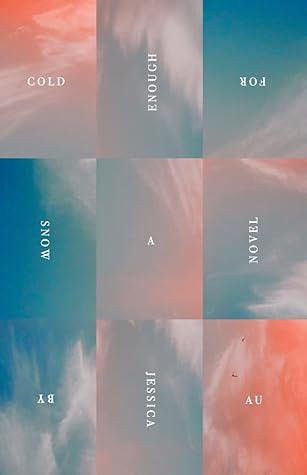More on this book
Community
Kindle Notes & Highlights
They reminded me of the seasons and, in their bare, visible threads, of something lovely and honest that had now been forgotten, a thing we could only look at but no longer live.
during one of those particular solitary, slightly abstract moments when a fragment of music can seem especially beautiful.
almost like how painters had once used the camera obscura: by looking indirectly at the thing they wanted to focus on, they were sometimes able to see it even more clearly than with their own eyes.
they seemed to know many other things as well: films and books and plays and artists, whose names they dropped into conversation with an ease that signaled something.
Each time, it was like I was traveling at the speed of light, as if I had spent all my life living in one dimension, only for its very fabric to tear open and a whole other universe to be revealed. Every time I finished a text, I felt like I was done, but then the same thing would happen again and again, a tearing open of my thoughts, a falling into a vast, unknown space, where the air rushed and all my senses were overwhelmed.
I too could be confident, and my thoughts felt rapid and full.
Back then, I had wanted every moment to count for something; I had become addicted to the tearing of my thoughts, that rent in the fabric of the atmosphere. If nothing seemed to be working toward this effect, I grew impatient, bored. Much later, I realized how insufferable this was: the need to make every moment pointed, to read meaning into everything. Yet every single one of my classmates back then seemed to be the same. Conversation was like a kind of judo, an exercise in constant movement. I felt a small sense of triumph when I was able to talk with them about the right kinds of books and
...more
I understood the pressure of feeling like you had to have a view or opinion, especially one that you could articulate clearly, which usually only came with a certain education. This, I said, allowed you to speak of history and context, and was in many ways like a foreign language. For a long time, I had believed in this language, and I had done my best to become fluent in it. But I said that sometimes, increasingly often in fact, I was beginning to feel like this kind of response too was false, a performance, and not the one I had been looking for. Sometimes, I looked at a painting, and felt
...more
what it had felt like to be in the earliest churches, when nature itself was still a force in the world, visceral and holy.
everything was done with a certain formality, a certain sense of weight and precision, as if to create a floating world.
I felt myself in an instant, the world opening up as if through a great funnel, going from my feet to the leaves to the sky above. In those moments I thought nothing, or if I thought at all it was unnameable. These moments never lasted; they were gone as quickly as they had come, so quickly I could never be sure that they had even happened. And then I had to be on my way.
I had the vague thought I had been taught somehow that the best thing was still to be desired, even if you did not desire, even if you did not much like the person who desired you. Where I had learned this, I did not yet know.
as in a painting where the subject gazes into a mirror, looking at something just out of sight.
These stories, I sensed, were ones that had been told many times, passed around and shaped by the whole family, smoothened and refined with each telling.
Laurie and I read till late, and when I finally fell asleep, I sensed that Laurie was no longer reading, but looking at me as one is able to look upon a person one knows well, fully, and without reserve.
My lecturer had said to us once that parents were their children’s fate, not only in the way of the tragedies, but in many other smaller, yet no less powerful ways as well. I knew that if I had a daughter, she would live partly because of the way I had lived, and her memories would be my memories, and she would have no choice in that matter.
perhaps it was all right not to understand all things, but simply to see and hold them.


